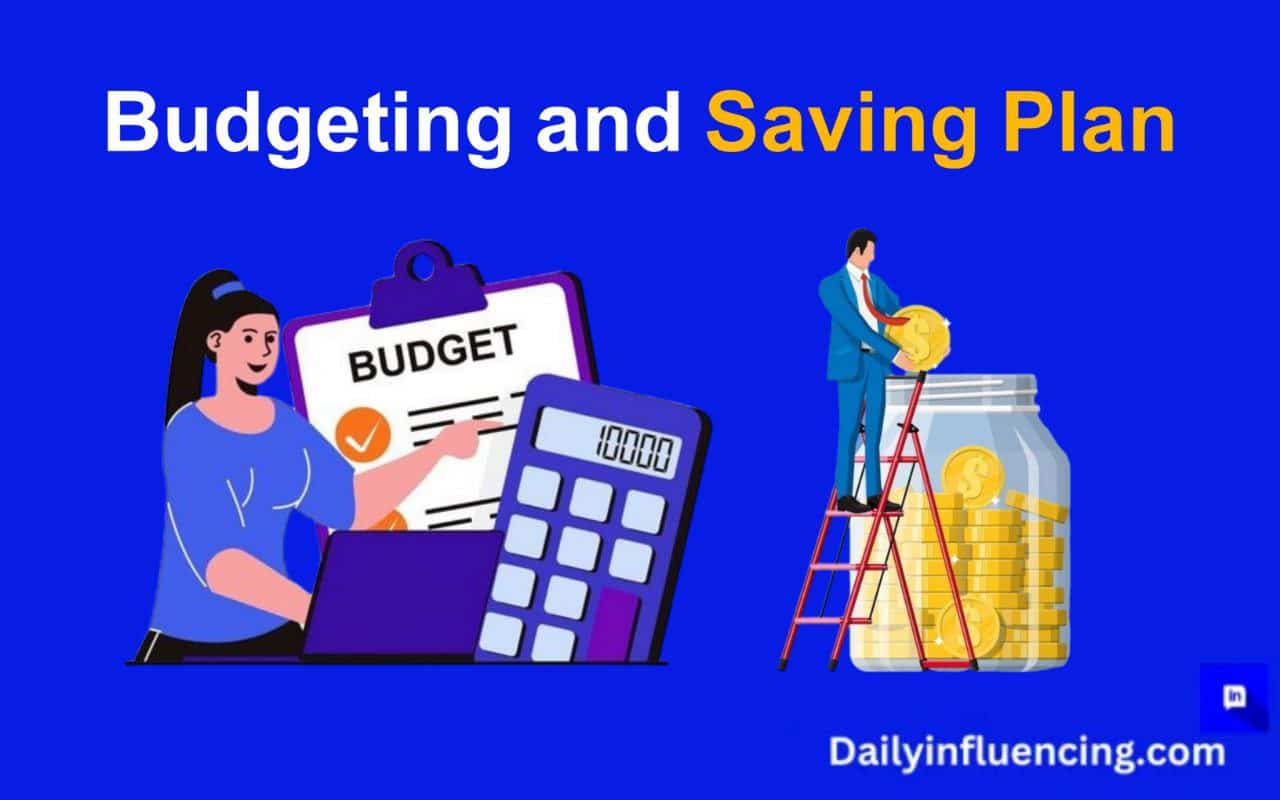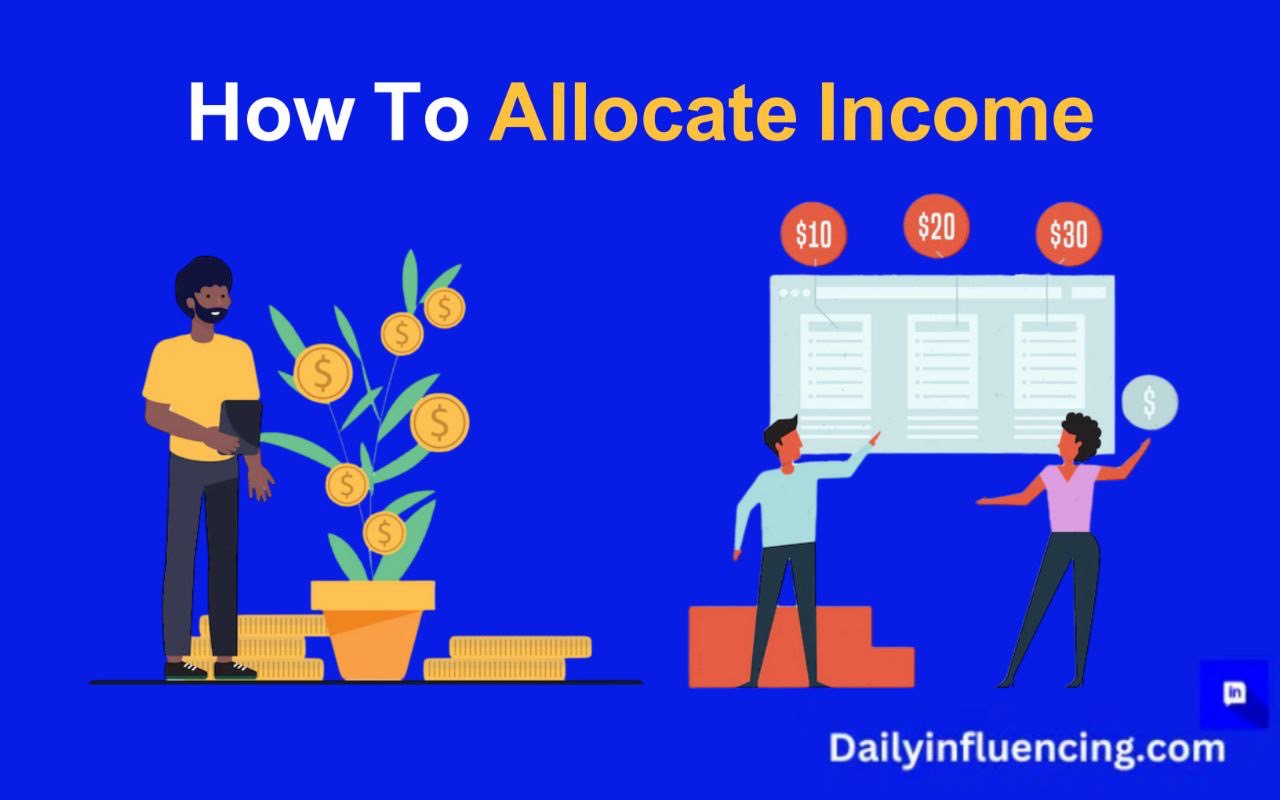Most Nigerians make use of several Budget app as a powerful tool to help them or Small and medium-sized businesses and individuals in Nigeria gain control over their finances. These digital solutions offer features tailored to local economic conditions and provide convenient ways to monitor expenses, set financial goals, and make informed decisions about spending and saving in the Nigerian context.
Managing personal finances can be challenging in Nigeria’s dynamic economic landscape, where inflation rates and currency fluctuations directly impact daily expenses. According to a recent survey, only 36% of adults have financial literacy while 60% of young Nigerians lack knowledge in budgeting and saving.
Budget Apps: Transforming Financial Management in Nigeria
The financial technology landscape in Nigeria has evolved significantly, with budget apps becoming essential tools for residents looking to manage their finances effectively. These applications offer customized solutions that address unique challenges faced by Nigerians, including multiple income streams, extended family financial responsibilities, and navigating the local banking system. By leveraging these digital tools, users can gain unprecedented visibility into their spending habits and make data-driven decisions to improve their financial health.
1. PiggyVest: Nigeria’s Leading Savings and Budget App
Finding a budget app that works with Nigerian banks can be such a headache. You might have downloaded several different international apps before realizing none of them could sync with your GTBank account!
That’s why PiggyVest is such a game-changer for many Nigerians. It isn’t just another foreign app trying to work in Nigeria – it was built FOR Nigerians, BY Nigerians who understand the unique financial challenges you face.
Why PiggyVest Stands Out Among Nigerian Budget Apps
What makes PiggyVest different is how it combines budgeting with savings in a way that actually makes sense for our economy. Many users have been using it for years now, and the “Safelock” feature has literally saved them from themselves countless times. You know those moments when you’re tempted to dip into your savings for something totally unnecessary? Yeah, the Safelock feature locks your money away until a date YOU set, and trust me, it works.
The analytics on spending patterns can be eye-opening too. PiggyVest categorizes expenses in ways that reflect how people actually spend in Nigeria – with sections for things like “aso ebi” contributions, family support, and generator fuel that foreign apps just don’t understand.
How to Maximize PiggyVest’s Budget Features
Here’s a tip that takes many users too long to figure out: set up the automatic saving feature to coincide with your payday. For the longest time, you might be trying to save what’s left at the end of the month which often leaves nothing at the end. Once you switch to saving automatically on salary day, you won’t even miss the money.
The group savings option (called “Piggybank Squad”) has been a lifesaver for family projects too. Many Nigerian families have used it to save for celebrations, education, or emergencies. Everyone can contribute at their own pace, and nobody can withdraw until the goal date is reached. No more chasing people for their contributions!
One thing that could be improved, though, is the investment section. The returns aren’t always as competitive as dedicated investment platforms in Nigeria. But for budgeting and basic savings? PiggyVest is hard to beat.
Small Monthly Savings, Big Future Rewards
Starting with just ₦5,000 a month in savings through PiggyVest can lead to impressive results. Within 18 months, you could save enough for a decent laptop without even feeling the pinch. The app gives you these little dopamine hits when you hit savings milestones, and honestly, it makes being financially responsible kinda addictive.
The budget tracking dashboard helps you visualize where your money’s going. For many users, seeing that they were spending nearly 18% of their income on takeout was the wake-up call needed. Within three months, you could cut that down to 7% and redirect the difference to your emergency fund.
Bottom line? If you’re in Nigeria and struggling to get your finances together, PiggyVest isn’t just another budget app – it’s practically financial therapy wrapped in an app. And no, they’re not paying anyone to say this. It’s just genuinely changed how many Nigerians handle money in a country where financial stability can feel like a moving target.
2. Cowrywise: Comprehensive Financial Planning with a Budget App for Nigerians
Many Nigerians have been there before – proudly stashing cash in an “emergency pillow”, thinking it’s financially responsible. Meanwhile, inflation eats away at your money faster than you can save it. That’s when discovering Cowrywise can change everything about how you approach finances in Nigeria’s unpredictable economy.
Maximizing Your Finances with a Budget App Like Cowrywise
Cowrywise isn’t just another budget app—it’s like having a financial advisor in your pocket who actually understands the Nigerian context. What really sets it apart is how it combines budgeting tools with actual investment opportunities. Most budget apps just tell you where your money went; Cowrywise shows you where it could go.
The first time many users invest in treasury bills through the app, they’re understandably nervous. Most people think investments are for the “big guys” with millions to spare. But Cowrywise lets you start with just ₦5,000, and the process is surprisingly straightforward. After six months, you’ll likely find yourself checking your returns and wondering why nobody taught this stuff in school!
Savings Circles: Modern “Ajo” for Today’s Nigerian
One feature that really resonates with users is the “Savings Circles” option. It’s basically the traditional Nigerian “ajo” or “esusu” system, but digitized and secure. Extended families have used it to save for reunions, and it works brilliantly because it taps into something Nigerians already culturally understand.
Growing up in Nigeria, you likely saw relatives in community savings groups, often struggling with missed payments or lost funds.Cowrywise eliminates those risks while preserving the communal aspect that makes “ajo” special. The fact that you can see everyone’s contributions (without showing actual amounts) keeps everyone accountable.
What makes Cowrywise truly valuable isn’t even the app itself—it’s the financial education it provides. The content specifically addresses Nigerian issues, such as saving during high inflation and planning for foreign exchange fluctuations.
Their budget templates have been eye-opening for many users. They offer different templates based on Nigerian lifestyles—whether you’re a student in Lagos, a young professional in Abuja, or a family in Port Harcourt. Try the “young professional in a major city” template, and you’ll find it’s scary and accurate in predicting expense categories. It even has sections for internet data and generator fuel.
3. Wallet by BudgetBakers: Customizable for Nigerian Banking Systems
I’ve tried using a budget app in the past, only to find out it doesn’t recognize your bank or understand naira transactions, which is so frustrating. That’s where Wallet by BudgetBakers comes in as a breath of fresh air for Nigerians looking to manage their finances effectively.
Unlike some apps that seem designed exclusively for Western economies, Wallet has taken the time to become properly compatible with the Nigerian banking ecosystem. You’ll be surprised to see it sync seamlessly with major Nigerian banks like GTBank, Access Bank, and UBA without errors.
Nigerian-Friendly Features You’ll Actually Use
What makes Wallet particularly appealing for Nigerian users is its offline functionality. In Nigeria, we know that internet connectivity isn’t always reliable in many parts of the country. Whether you’re in Lagos dealing with network congestion or somewhere in Sokoto with spotty coverage, Wallet lets you log expenses and check your budget even when you’re offline. Everything syncs up once you’re connected again.
The expense categorization system is another feature that shows the app’s adaptability to Nigerian life. You can create custom categories that make sense for your spending patterns—like “okada/keke transportation,” “diesel for gen,” or “family obligations.” No more trying to fit your uniquely Nigerian expenses into foreign app categories that don’t quite fit!
Spending 30 minutes setting up your Wallet budget is worth the effort. Customize budget templates to match your income frequency, whether a monthly salary or irregular earnings from entrepreneurship or gig work.
One particularly useful feature is the bill payment reminder system. With the inconsistent billing cycles many Nigerian service providers have, these reminders can save you from embarrassing disconnections or late payment penalties. You can set them up for everything from your DStv subscription to your rent payments.
Many users report saving between 15-20% of their income after just three months of consistent use. That’s substantial in an economy where inflation keeps eating into purchasing power! The visual breakdown of your spending can be quite eye-opening—many Nigerians discover they’re spending way more on data bundles or eating out than they realized.
The multi-currency support is another game-changer if you deal with dollars or other foreign currencies alongside naira. Wallet lets you track remittances and international business transactions in one place. You can even set exchange rate alerts to notify you when rates are favorable.
4. Carbon: A money management app that simplifies financial planning.
In Nigeria’s unpredictable economy, tracking money isn’t enough—you need quick access to extra funds for emergencies. That’s where Carbon shines as more than just a budgeting app; it’s a comprehensive financial tool designed specifically for the Nigerian market.
Formerly known as Paylater, Carbon has evolved from a simple loan app to a full-fledged financial ecosystem that combines budgeting tools with accessible micro-loans. This integration helps you track your naira and access extra funds when needed.
Budgeting with a Credit Advantage
Carbon’s budgeting interface isn’t the flashiest, but it’s highly effective for managing everyday finances in Nigeria. The app automatically categorizes your transactions, giving you a clear picture of where your money goes each month. Users are often shocked to learn they spend over 30% of their income on small expenses like daily shawarma and bole.
What sets Carbon apart is how it ties your budgeting behavior to your borrowing power. By consistently staying within your budget and making timely bill payments through the app, you can improve your credit score. This score determines your loan limits and interest rates—a practical introduction to credit management in a country where formal credit scoring is still developing.
A budget app that helps manage micro-loans effectively.
Need a quick ₦20,000 to cover an unexpected expense before payday? Carbon’s loan feature allows you to borrow amounts ranging from ₦1,500 to ₦1 million depending on your credit score and history with the app. Loans are typically processed within minutes—not days or weeks like traditional banks.
With 5-15% monthly interest, these loans are high for banks but competitive for micro-loans and cheaper than informal lenders. Plus, every successful repayment improves your standing for future borrowing.
One feature that saves many Nigerian users time and tracking headaches is Carbon’s bill payment functionality. You can pay for electricity, internet, TV subscriptions, and even airtime directly through the app. Each payment is automatically categorized in your budget, helping you keep track of recurring expenses without manual entry.
This integration simplifies budgeting by eliminating the need to switch between apps for managing your finances. Everything happens in one place, giving you a holistic view of your financial situation.
5. Kuda: Digital banking with a powerful budget app
“A bank that actually helps you save money? That’s just marketing talk.” If you’ve had this thought about traditional Nigerian banks, Kuda might just change your mind. This digital-only bank has revolutionized the way Nigerians approach banking by integrating powerful budgeting tools directly into its free banking platform.
Unlike conventional budgeting apps that need to be connected to your bank account (often with mixed results), Kuda IS your bank account. This integration eliminates the frustrating delays and syncing issues that plague most third-party budgeting tools in Nigeria.
Free banking with a built-in budget app
Open a Kuda account in minutes—no branch visits, no forms, and no minimum balance required. Once your account is active, you’ll notice the budgeting features are seamlessly integrated into the banking experience, not tacked on as an afterthought.
The app automatically categorizes your spending, allowing you to see exactly where your money goes. Many users report being surprised by their actual spending patterns—like discovering they’re spending ₦25,000 monthly on ride-hailing services when they thought it was closer to ₦10,000. This visibility alone has helped thousands of Nigerians make more informed financial decisions.
Automated Savings that Actually Work
Kuda’s “Save” feature deserves special mention because it approaches savings differently than most Nigerian banks. Instead of just offering a fixed deposit account, Kuda analyzes your spending patterns and automatically sets aside small amounts you can afford to save. You won’t even notice the money leaving your account, but you’ll certainly notice when it accumulates.
The “Spend+Save” feature is particularly clever—it rounds up your transactions to the nearest hundred naira and saves the difference. Buy something for ₦1,850? Kuda rounds it to ₦1,900 and quietly tucks away that ₦50 into your savings. These micro-savings add up surprisingly quickly, with many users reporting ₦50,000-₦100,000 in “found money” after just a few months.
Real-time budget app controls.
Perhaps the most powerful budgeting feature is Kuda’s spending limits functionality. You can set daily, weekly, or monthly limits for different categories of spending. Try to exceed your ₦20,000 monthly “eating out” budget? The app will warn you before you complete the transaction.
This proactive approach to budgeting helps prevent overspending rather than just reporting it after the fact. For many Nigerians struggling with impulse purchases, this feature alone has been transformative for their financial health.
The real-time transaction alerts deserve special mention. While most Nigerian banks send SMS notifications often with delays, Kuda’s push notifications are instantaneous and cost-free. This immediate feedback loop helps you stay constantly aware of your financial situation.
These notifications integrate with your budget tracking, showing not just the transaction amount but also how it affects your budget for that category. Spent ₦5,000 on groceries? Your notification will show you’ve now used 50% of your grocery budget for the week.
6. Spendee: Visual Budget Tracking for Nigerian Users
Ever glanced at a spreadsheet of numbers and felt your eyes glazing over? That’s the problem Spendee solves for many Nigerians struggling to make sense of their finances. Nigeria values visual storytelling, making Spendee’s colorful charts and intuitive graphics especially effective for budget tracking.
Though not made for Nigeria, Spendee attracts tech-savvy Nigerians seeking a visually engaging way to manage finances. The app’s clean interface and visual representation of complex financial data make budgeting feel less like a chore and more like an insightful journey.
Vibrant visualizations that make money management app clear
Spendee’s standout feature is undoubtedly its beautiful visual reports. Instead of endless rows of numbers, you get colorful charts and graphs that show exactly where your naira is going. The expense breakdown pie charts are particularly eye-opening—many users report finally understanding their spending patterns after seeing them visualized.
The app supports the Nigerian currency, allowing you to track all your expenses in naira. The visual representation makes it immediately obvious when certain categories are consuming too much of your budget. ₦500 daily snacks seem small, but a growing red segment on your expense chart makes their impact clear.
Multiple Wallets for Nigeria’s Cash-Based Economy
One feature that makes Spendee particularly suitable for Nigerian users is the multiple wallet function. This feature is invaluable in Nigeria, where many rely on cash and manage multiple bank accounts and cash reserves.
You can create separate wallets for your GTBank account, UBA account, dollar savings, and even your physical cash. Each wallet can be tracked independently but also viewed as part of your overall financial picture. This helps address the common Nigerian challenge of money being scattered across multiple platforms and physical locations.
Shared Family Finances Made Easy with A Budget App that Understands
The shared budget feature addresses another uniquely Nigerian financial reality—the interconnected nature of family finances. Spendee lets you create shared wallets for managing household budgets or coordinating family finances with multiple users.
This collaborative approach works well for planning family events (like the inevitable elaborate Nigerian weddings), managing household expenses, or even coordinating business finances for small family enterprises. Everyone with access can see transactions in real time, eliminating the confusion that often surrounds shared financial responsibilities.
Anyone who’s shopped in a Nigerian market knows the challenge of tracking expenses when receipts are rare. Spendee’s photo receipt capture feature lets you quickly snap a picture of any receipt you do receive or even just take a photo of items purchased in receipt-free scenarios.
This visual record helps you remember what exactly that ₦3,500 spent at Balogun Market was for, even weeks later. For business owners who need to track expenses for tax purposes, this feature can be particularly helpful in Nigeria’s often informal commercial environment.
7. YNAB (You Need A Budget): Adapted for Nigerian Financial Challenges
When you first encounter YNAB, you might wonder if this international budgeting powerhouse can work for your Nigerian financial situation. The good news It absolutely can—and in ways that might surprise you.
YNAB’s four budgeting rules work everywhere but stand out for their adaptability to Nigeria’s unique financial challenges. The app wasn’t designed for Nigeria, but many users found it surprisingly suited to our financial reality.
Zero-based budgeting made easy with a budget app
YNAB’s zero-based budgeting philosophy works brilliantly for Nigerian income patterns. Whether you’re receiving a steady monthly salary or juggling multiple income streams—like that main job, side hustle, and weekend business many Nigerians maintain—YNAB helps you allocate every kobo purposefully.
The system is particularly helpful for managing the irregular income patterns common in Nigeria’s gig economy. Budget with your actual money, not expected income, to stay in control and avoid panic during lean months. This mentality shift alone has helped countless Nigerian users break the paycheck-to-paycheck cycle despite economic uncertainties.
Goal Tracking for Nigeria-Specific Expenses
Setting up financial goals in YNAB feels like having a personal financial coach in your pocket. The app lets you create targeted savings goals for those big expenses that hit Nigerian households periodically—school fees each term, annual rent payments (because who doesn’t know the pain of landlords demanding one or two years’ rent upfront?), or even saving for generator purchases during frequent power outages.
Users find the goal-tracking feature valuable for planning family obligations, which carry greater financial weight in Nigerian culture. YNAB helps you save for family needs like medical bills or education without disrupting your financial goals.
Multi-currency support built into your budget app
If you’ve ever dealt with the headache of managing both naira and foreign currencies, you’ll appreciate YNAB’s multi-currency capabilities. For Nigerians working with international clients, receiving foreign remittances, or saving dollars as a hedge against inflation, this feature is invaluable.
Create budget categories for different currencies to track balances easily without constant conversion. This makes YNAB especially useful for entrepreneurs, freelancers, or anyone with family abroad sending support.
Debt Reduction Strategies for Nigerian Loan Structures
The debt paydown features in YNAB have been adapted by many Nigerian users to fit local lending structures. Whether you’re dealing with a traditional bank loan, microfinance obligations, or even cooperative society loans, YNAB helps you visualize and systematically reduce these debts.
The app’s approach to debt—treating it as another expense category rather than something shameful—helps shift perspective in a culture where financial struggles are often kept private. Users report feeling more in control and less anxious about their debt situations after implementing YNAB’s strategies.
Conclusion
The right budget app can transform financial management for Nigerians, offering tools that address the unique economic challenges of the country. From PiggyVest’s savings-focused approach to Carbon’s integrated lending platform, these seven apps provide various solutions to help users track expenses, build savings, and work toward financial freedom.
Choose an app that fits your financial goals and lifestyle to control your finances and make informed, long-term decisions. Start your financial freedom journey today with a budgeting tool designed for Nigerian users.
FAQ’s
Most of these apps offer free basic versions with premium features available for subscription fees. PiggyVest, Cowrywise, and Kuda offer robust free versions, while YNAB and Spendee require subscriptions after trial periods.
Yes, apps like PiggyVest, Cowrywise, Carbon, and Kuda integrate directly with most Nigerian banks. Wallet by BudgetBakers and Spendee support major Nigerian banks, while YNAB may require manual transaction entry for some local banks.
Wallet by BudgetBakers and Spendee offer robust offline functionality. Most others require internet connectivity for full features but can store some data locally for later synchronization.
All listed apps employ bank-level encryption and security measures. Nigerian-developed apps like PiggyVest, Cowrywise, Carbon, and Kuda comply with Central Bank of Nigeria regulations for financial technology services.





